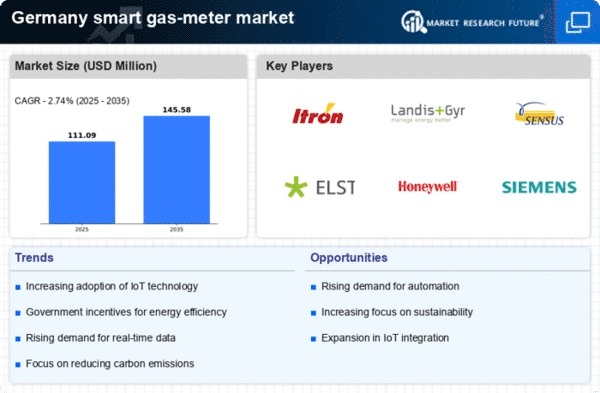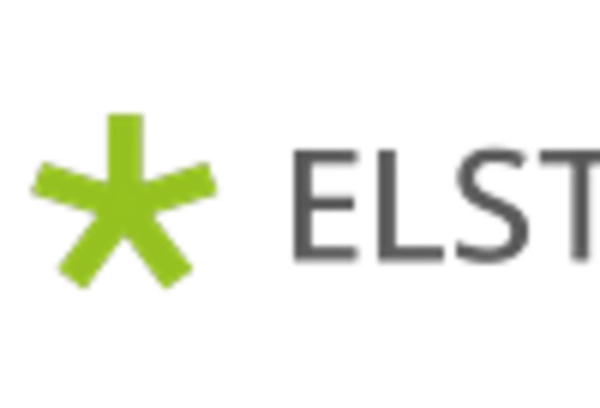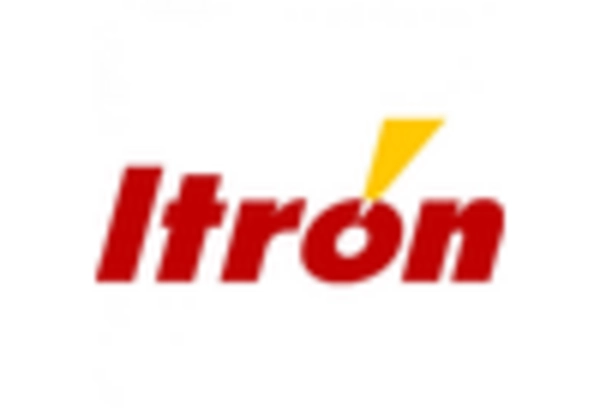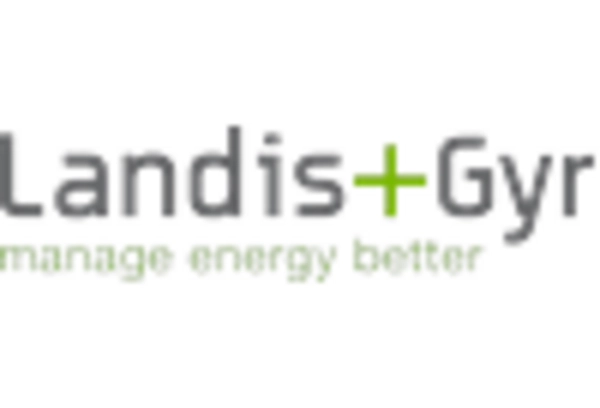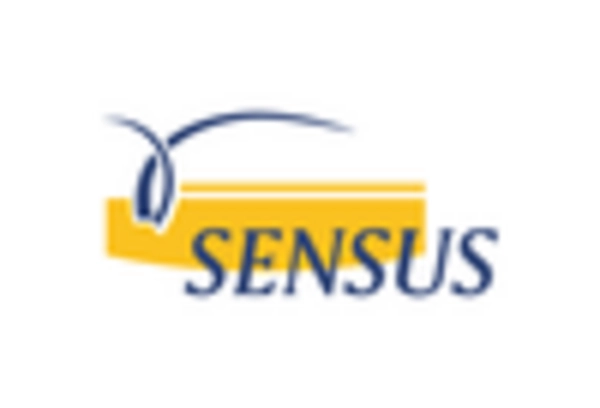Consumer Awareness and Acceptance
Consumer awareness and acceptance of smart metering technologies are critical drivers for the smart gas-meter market in Germany. As educational campaigns and outreach programs increase, more consumers are becoming informed about the benefits of smart gas meters, such as enhanced accuracy and real-time data access. Surveys indicate that approximately 70% of consumers are now open to adopting smart metering solutions, reflecting a significant shift in public perception. This growing acceptance is likely to stimulate market growth, as utilities respond to consumer demand by expanding their smart gas-meter offerings.
Government Initiatives and Funding
Government initiatives play a crucial role in the development of the smart gas-meter market in Germany. The German government has implemented various funding programs aimed at promoting the adoption of smart metering technologies. These initiatives are designed to support energy efficiency and sustainability goals, which align with the European Union's broader energy policies. As of 2025, it is estimated that government funding for smart gas-meter projects could reach up to €500 million, significantly boosting market growth. This financial support not only encourages utility companies to invest in smart metering but also enhances consumer trust in these technologies.
Rising Demand for Energy Efficiency
The increasing demand for energy efficiency among consumers and businesses is a significant driver for the smart gas-meter market in Germany. As energy costs continue to rise, both residential and commercial users are seeking ways to optimize their energy consumption. Smart gas meters provide detailed insights into usage patterns, enabling users to make informed decisions about their energy use. Reports indicate that energy-efficient practices can lead to savings of up to 20% on energy bills. This growing awareness and demand for energy efficiency are likely to propel the smart gas-meter market forward, as more users recognize the benefits of adopting smart technologies.
Integration with Renewable Energy Sources
The integration of renewable energy sources into the energy grid is becoming increasingly important in Germany, influencing the smart gas-meter market. As the country transitions towards a more sustainable energy model, smart gas meters are essential for managing the complexities associated with variable energy sources. These meters facilitate better demand response strategies and enable consumers to take advantage of time-of-use pricing. The market is expected to grow as utilities and consumers recognize the need for advanced metering solutions that accommodate renewable energy integration. This could potentially increase market size by 25% in the coming years.
Technological Advancements in Metering Solutions
The smart gas-meter market in Germany is experiencing a surge due to rapid technological advancements in metering solutions. Innovations such as IoT integration and enhanced data analytics capabilities are transforming traditional gas metering into smart systems. These advancements enable real-time monitoring and data collection, which can lead to improved efficiency and reduced operational costs. According to recent data, the adoption of smart metering technology in Germany is projected to increase by approximately 30% over the next five years. This growth is driven by the need for more accurate billing and better resource management, making it a pivotal driver for the smart gas-meter market.


